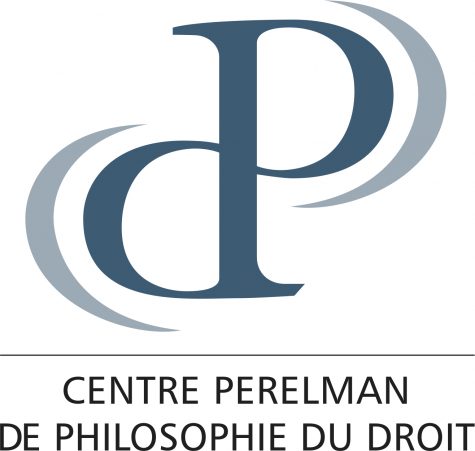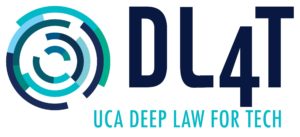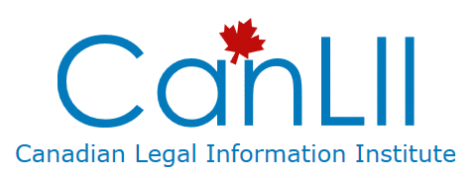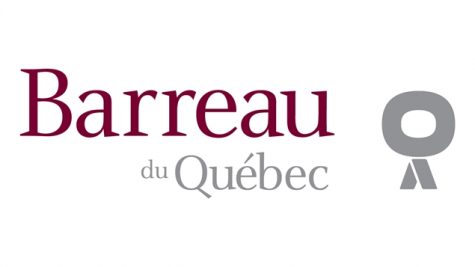Début – 2019 | Fin – 2024
Durée – 5 ans
L’utilisation des algorithmes pour la justice implique la collecte de données qui enrichissent le potentiel de ces outils sans qu’il soit possible de prédire avec certitude le type d’avancement accessible demain. L’éthique est fondamentale dans ce mécanisme dès lors que les progrès de ces technologies doivent se réaliser dans le respect des droits fondamentaux de la personne, ce qui nécessite d’intégrer des repères pour que ces outils soient transparents et conformes aux critères d’une société démocratique.

Chef de chantier
Jacquelyn Burkell
Activités de recherche
Études de cas
Le groupe de travail 13 réalisera deux études de cas sur les questions éthiques soulevées par les technologies d’IA dans le système judiciaire, en s’appuyant sur la typologie des applications d’IA réalisée par le chantier 10 et sur l’examen de la portée des questions de ce chantier.
Inventaires
Le premier inventaire du chantier 13 portera sur les questions éthiques qui découlent de la mise en œuvre des technologies d’IA dans le système judiciaire.
Dans le cadre d’un deuxième inventaire, les activités de recherche aboutiront à la création d’une bibliographie annotée de la littérature sur les questions éthiques liées aux technologies d’IA dans le système judiciaire.
Publications des chercheurs
- Jane BAILEY, Jacquelyn BURKELL, Suzie DUNN, Chandal GOSSE, et al. « AI and Technology-Facilitated Violence and Abuse », dans Florian MARTIN-BARITEAU, Teresa SCASSA (dir.), Artificial Intelligence and the Law in Canada, Toronto: LexisNexis Canada, (2021).
- Amy SALYZYN, « AI and Legal Ethics » dans Florian MARTIN-BARITEAU, Teresa SCASSA (dir.), Artificial Intelligence and the Law in Canada, Toronto: LexisNexis Canada, (2021).
- Jacquelyn BURKELL, « The Challenges of Algorithmic Bias », document de travail, lectures du Barreau de l’Ontario, 2019. PDF
- Jena MCGILL, Amy SALYZYN « Judging by Numbers: How Will Judicial Analytics Impacte the Justice System and Its Stakeholders? », (15 juillet 2020) No. 2020-13, Ottawa Faculty of Law Working Paper. PDF
- Ryad Titah, « Villes numériques : les technologies de l’information pour faire face aux grands défis urbains », LaPresse, (4 octobre 2020).
- Jane BAILEY et Priscilla M. REGAN. « Big Data, Privacy and Education Applications », (2020) 29-1 Ed and LJ 55.
- Jane BAILEY et Jacquelyn A. BURKELL. « Equality at Stake: Connecting the Privacy/Vulnerability Cycle to the Debate about Publicly Accessible Online Court Records », (2018) 4-1 Canadian Journal of Comparative and Contemporary Law 67.
- Jacquelyn BURKELL, Priscilla M. REGAN, « Voter Preferences, Voter Manipulation, Voter Analytics: Policy Options for Less Surveillance and More Autonomy », (2019) No. 8-4, Internet Policy Review, DOI : 10.14763/2019.4.1438.
- Luisa DAMIANO, Paul DUMOUCHEL, « Anthropomorphism in Human–Robot Co-evolution », (2018) No. 9, Frontiers in Psychology, 468, DOI : 10.3389/fpsyg.2018.00468.
- Luisa DAMIANO, Paul G. DUMOUCHEL, « Emotions in Relation. Epistemological and Ethical Scaffolding for Mixed Human-Robot Social Ecologies », (2020) 13-37, HUMANA.MENTE Journal of Philosophical Studies, 181206.
- Primavera DE FILIPPI, Morshed MANNAN, Wessel REIJERS, « Blockchain as a Confidence Machine: The Problem of Trust & Challenges of Governance », (2020) No. 62, Technology in Society, 101284, DOI : 10.1016/j.techsoc.2020.101284.
- Paul DUMOUCHEL, « Intelligence, Artificial and Otherwise », (2019) No. 24-2, Forum Philosophicum, 241258, DOI : 10.35765/forphil.2019.2402.11.
- Chandell E. GOSSE, Jacquelyn BURKELL, « Politics and Porn: How News Media Characterizes Problems Presented by Deepfakes », (2020) No. 37-5, Critical Studies in Media Communication, 497-511, DOI : 10.1080/15295036.2020.1832697.
- Jenni Maria HAKKARAINEN, Riikka KOULU, Kalle Aleksi MARKKANEN, « Läpinäkyvät algoritmit ? Lähdekoodin julkisuus ja kontrolli hallinnon digitalisaatiossa », [« Transparent Algorithms? Source Code Publicity and Control in Administrative Digitalization »], (2020) Edilex.
- Mireille M. HILDEBRANDT, « Smart Technologies », (2020) No. 9-4, Internet Policy Review, pp. 1-16, DOI : 10.14763/2020.4.1531.
- Mireille M. HILDEBRANDT, « The Artificial Intelligence of European Union Law », (2020) No. 21-1, German Law Journal, 74-79, DOI : 10.1017/glj.2019.99.
- Riikka KOULU, « Crafting Digital Transparency: Implementing Legal Values into Algorithmic Design », (2021) No. 81, Critical Analysis of Law, 81-100.
- Riikka KOULU, « Proceduralising Control and Discretion: Human Oversight in Artificial Intelligence Policy », (2020) Maastricht Journal of European and Comparative Law, DOI: 10.1177/1023263X20978649.
- Riikka KOULU, « Human Control over Automation: EU Policy and AI Ethics », (2020) No. 1, European Journal of Legal Studies, 9.
- Liam MCCOY, Jacquelyn BURKELL, Dallas CARD, Brent DAVIS, Judy GICHOYA, Sophie LEPAGE, David MADRAS, « On Meaningful Human Control in High-Stakes Machine-Human Partnerships », (2019) UCLA: The Program on Understanding Law, Science, and Evidence (PULSE).
- Alexander DEKHTYAR, Jane HUFFMAN HAYES, Irit HADAR, Erin COMBS, Alessio FERRARI, Sarah GREGORY, Jennifer HORKOFF, Meira LEVY, Maleknaz NAYEBI, Barbara PAECH, Jared PAYNE, Matt PRIMROSE, Paola SPOLETINI, Shell CLARKE, Chuck BROPHY, Daniel AMYOT, Walid MAALEJ, Guenther RUHE, Jane CLELAND-HUANG et Didar ZOWGHI, « Requirements Engineering (RE) for Social Good: RE Cares [Requirements] », (2019) 36-1 IEEE Software 86‑94, DOI: 10.1109/MS.2018.2874327.
- Paul DUMOUCHEL, « Philosophy and the Politics of Moral Machines », (2019) 4-31-50 Journal of Artificial Intelligence Humanities Université Chung-Ang de Seoul.
- Wachara FUNGWACHARAKORN, Kanae TSUSHIMA et Ken SATOH, « Resolving Counterintuitive Consequences in Law Using Legal Debugging », Artificial Intelligence and Law, (forthcoming).
- Antoine GARAPON et Jean LASSÈGUE, « Concluding Remarks of the Seminar on Blockchain and Procedural Law », Stanford Journal of Blockchain Law and Policy (forthcoming).
- Iria GIUFFRIDA, « Liability Risk for Artificial Intelligence Predictive Decision-Making », (2019) 88 Fordham Law Review 439.
- Mireille HILDEBRANDT, « Privacy as Protection of the Incomputable Self: From Agnostic to Agonistic Machine Learning », (2019) 20-1 Theoretical Inquiries in Law.
- Vincent LARIVIÈRE and Jean-Philippe WARREN, « The Dissemination of National Knowledge in an Internationalized Scientific Community », (2019) 44 Canadian Journal of Sociology 18, DOI: 10.29173/cjs29548.
- Jean LASSÈGUE, « Ambivalence du calculable et crise du jugement », (2019) 82 Archives de Philosophie 255, DOI: 10.3917/aphi.822.0255.
- Jean LASSÈGUE, « L’Intelligence artificielle, technologie de la vision numérique du monde », (2019) 2 Les Cahiers de la Justice 205, DOI: 10.3917/cdlj.1902.0205.
- Pedro BORGES FORTES et David RESTREPO AMARILES, « Law-jobs in the Algorithmic Society », (2022) International Journal of Law in Context 1-12, DOI: 10.1017/S174455232200043X.
- David RESTREPO AMARILES, Valeria STOURM, Scott A. NESLIN, Eric T. BRADLOW, Els BREUGELMANS, So Yeon CHUN, Pedro GARDETE, P. K. KANNAN, Praveen KOPALLE, Young-Hoon PARK, Raphael THOMADSEN, Yuping LIU-THOMPKINS et Rajkumar VENKATESAN, « Refocusing loyalty programs in the era of big data: a societal lens paradigm », (2020) 31-4 Marketing Letters 405-418, DOI: 10.1007/s11002-020-09523-x.
- Teresa SCASSA, Amy SALYZYN, Jena McGILL et Suzanne BOUCLIN, « Developing Privacy Best Practices for Direct-to-Public Legal Apps: Observations and Lessons Learned », (2020) 18-1 Canadian Journal of Law and Technology.
- David TAIT, « Rituals and Spaces in Innovative Courts », (2018) 27-2 Griffith Law Review 233, DOI: 10.1080/10383441.2018.1537074.
- Jacquelyn BURKELL et Jane BAILEY, « Unlawful Distinctions? : Canadian Human Rights Law and Algorithmic Bias », (2018) Canadian Yearbook of Human Rights 217.
- Alexei GRINBAUM, « Ethics in the Framework of Responsible Research and Innovation », (2019) 2 Technologos 21-30, DOI: 10.15593/perm.kipf/2019.2.02.
- Riikka KOULU, « Täytäntöönpanon yksityistyminen eli miten teknologia mullistaa tapamme ymmärtää riidanratkaisu? » [« Privatisation of Enforcement or How Technology Changes Our Perception of Dispute Resolution »], (2019) 3 Oikeus 265.
- Paul DUMOUCHEL, « The Impacts of Technology: Anthropological Foundations », (2019) 3 Concilium 15.
- Ida KOIVISTO et Riikka KOULU, « Kuinka hyvä hallinto digitalisoidaan? Haaste oikeustieteelliselle tutkimukselle » [« How to Digitalise Good Administration? Challenge for Socio-Legal Scholarship »], (2020) Lakimies 798-821.
Présentations
Partenaires
 Partenaire universitaire |  Partenaire universitaire |  Partenaire industriel |
 Partenaire professionnel |  Partenaire universitaire | Partenaire institutionnel |
Partenaire institutionnel |
Ce contenu a été mis à jour le 23 août 2024 à 15 h 42 min.
